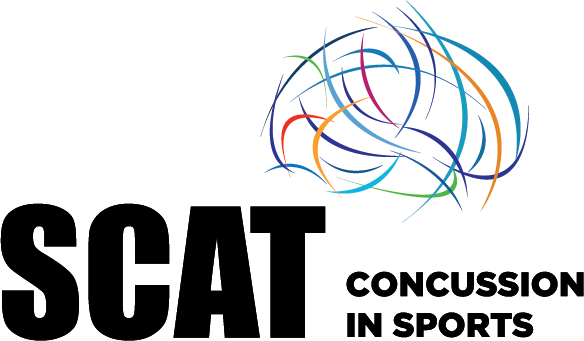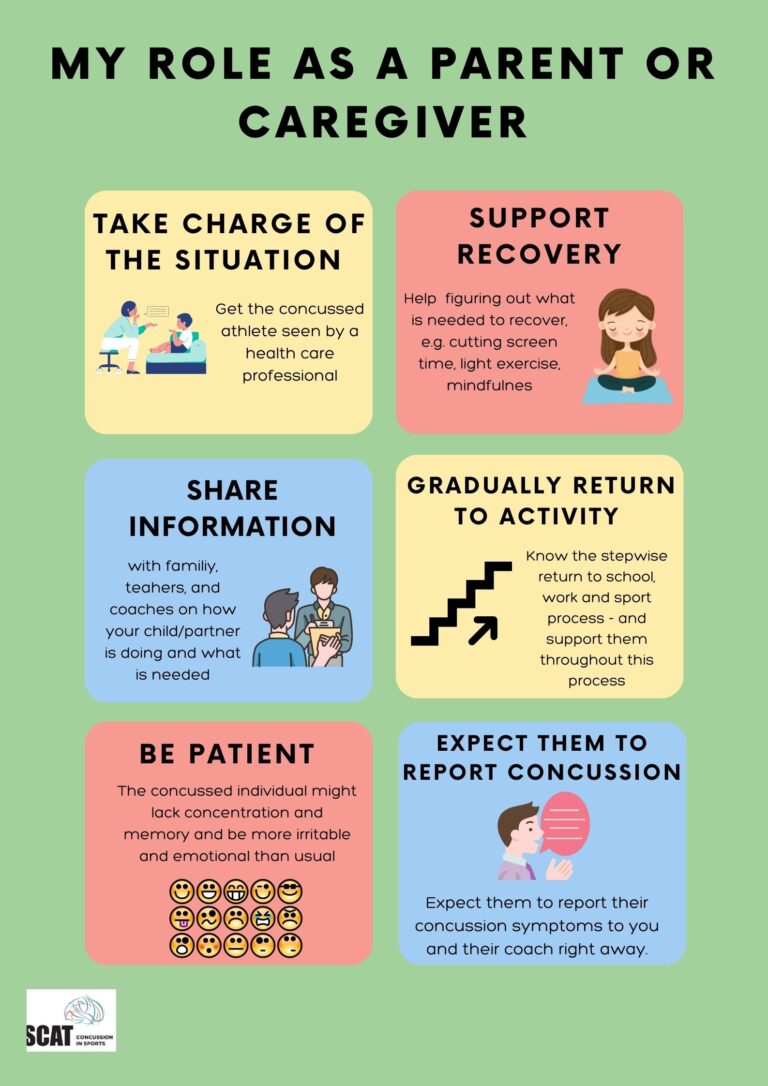My role as a Parent or Caregiver
Take charge of the situation
When someone is suspected of concussion the person should not be left alone for the first couple of hours after the incident. Symptoms may evolve over minutes and hours. In rare cases severe complications may occur after head trauma.
In the case where ANY of the following signs (red flags) are observed or complaints are reported go to the emergency room or contact your GP. Click here to learn more about recognising concussion.
Red Flags:
- Severe neck pain or tenderness
- Double vision
- Weakness or tingling/burning in arms or legs
- Severe or increasing headache
- Seizure or convulsion
- Loss of consciousness
- Deteriorating conscious state
- Vomiting
- Increasing restlessness, agitation, or combativeness
Support recovery, share information, help gradually return to activity and be patient
During recovery the person may need support in figuring out what is best for them.
They may be more emotional and lack concentration and at the same time, it can be difficult to explain how it feels to have a concussion.
Seek medical assistance if you have any doubts or questions.
Be knowledgeable of the gradually return to school, work and sport process.
Keep a close dialogue with teachers, employers and coaches during the recovery to support the best accommodations in school and work.
Help monitoring symptoms and progression during return to school, work and sport
Did You Know?
Did you know that when returning to sport you have to follow a stepwise approach and that most athletes take 2-4 weeks to return to sport after concussion?
Expect your child or partner to report concussion
Sometimes athletes do not report concussion because they are afraid of disappointing or letting their coach. team or parents down.
It is not recommended to play through symptoms of concussion or to return to sport without medical clearance.
Let your child or partner know that you expect them to report any sign or symptoms of concussion, because their safety comes first – and in modelling a good concussion environment in your child sports setting.
My Role as a Parent or Caregiver
Take Charge of the Situation
Get the concussed athlete seen by a health care professional
Support Recovery
Help figuring out what is needed to recover, eg. cutting screentime, light exercise, mindfulness
Share Information
With family, teachers, and coaches on how your child/partner is doing and what is needed
Gradually Return to Activity
Know the stepwise return to school, work and sport process – and support them throughout the process
Be Patient
The concussed individual might lack concentration and memory and be more irritable and emotional than usual
Expect them to Report Concussion
Expect them to report their concussion symptoms to your and their coach right away
Useful Resources
Please Note: These links will bring you to PDF documents on external websites.


